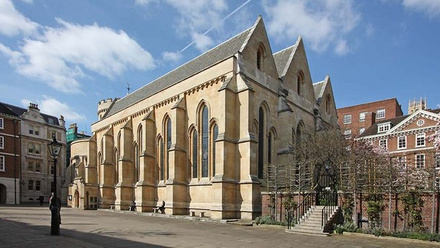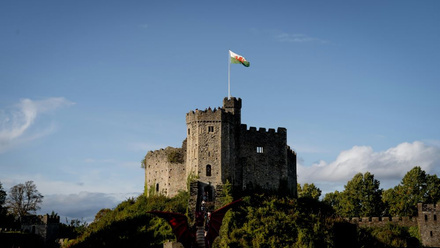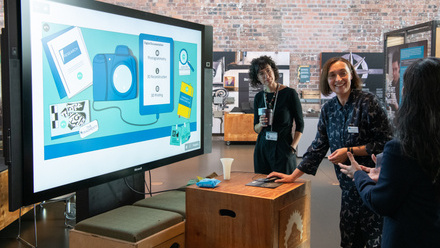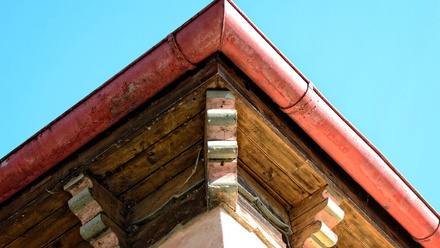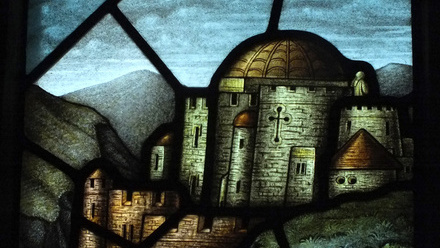Levelling Up: An Opinion
Some months ago Sara Crofts, Icon’s Chief Executive, invited Icon’s members to tell her what “Levelling up” – a key manifesto pledge of the UK Government – means to conservation professionals. Here is a very personal response.
I have thought and over-thought this, but it is actually really simple: for me in my work, levelling-up means an arts and culture sector where anyone and everyone belongs, regardless of who they are. A place that tells many stories well, and with many voices. One of the few sectors with an untarnished reputation. One where anyone feels welcome and comfortable and valued, and nobody feels that they are ‘not allowed’.
The phrase ‘not allowed’ was one of the saddest things I have heard anyone say about being in the cultural heritage sector. And the speaker was Kae Tempest – one of the most celebrated slam poets of our age! They were describing an event at the V&A where they were the main act. And that is how they actually felt: awkward and ‘not allowed’. This was a few years ago, and thankfully many things have moved on since then, but the progress has mainly been achieved front-of-house in our museums and historic places. Behind the scenes, there is still a long way to go. Why? And why is conservation in the UK still nowhere near a reflection of the diverse society it serves? This year alone, report after report revealed a shocking lack of progress in key areas that have been a concern for a long time: racism, sexism, ageism and all the other disgusting -isms that are found in and out of the workplace.
All those weeks ago I first offered up practical suggestions for removing the barriers to levelling-up in our sector by exhorting us all to seize every opportunity of telling people (and especially young children) about our work, so they make a connection with the sector and understand what it is and who it is for. If we can ignite their interest then hopefully they will want to visit museums and heritage sites for inspiration and learning, and maybe work in the sector eventually. To support this we need to create and, importantly, maintain many points of entry for training and qualification. Who can disagree with King Charles (then Prince of Wales) speaking on the recent special episode of BBC’s The Repair Shop when he lamented the continued lack of investment in heritage skills and other vocational training and observed that not everybody has an aptitude for academic study, but are instead in possession of wonderful manual dexterity and problem-solving skills that we as a society sorely need.
Within the conservation sector Icon Accreditation is a great tool for levelling-up, as it accommodates many different points of entry into our field by assessing professional competence, not the road by which it was achieved. Complemented by new work on apprenticeships and well-managed, paid internships, these are things Icon should be justly proud of.
I also reiterated the truism that we need to offer fair salaries, with less emphasis on volunteering, unpaid internships and other working for free (which benefits those who can afford to and excludes those who can’t). Hats off to the Fair Museum Jobs for their Manifesto and for their untiring monitoring and calling out of bad practice!
I argued that we really must explode the professional hierarchies within our sector and start valuing all specialisms equally. It is ridiculous that the conservation of easel paintings and sculpture is sometimes still perceived as superior to other conservation disciplines (a notion excellently illuminated and condemned by Sarah Scaturo in the Icon Annual Lecture ‘It’s just a Dress’). I urge training institutions to actively nurture a less elitist attitude among their students and alumni. Perhaps this runs counter to the ‘celebration of excellence’ that has become endemic in our competitive higher education environment, but elitism and the cult of perfection perpetuates gatekeeping and limits the care and study of our collective heritage to a group of high-end practitioners.
I also suggested that we use our material heritage and our historic places to tell stories more completely than we currently do. Let us properly acknowledge and explore all the lesser told stories that are embodied in our heritage collections – lives lived with substance addiction, homelessness, poverty, chaos, bereavement and loss, mental and physical health issues – to name the most obvious. These objects and places were made by people just as diverse as those who now curate and conserve them, and those who come to experience them. While there is already a lot of conscious effort being made to share these stories more widely and more effectively we all need to learn how do this as naturally as breathing, and we should be brave enough to personally test our received values and to reject tired tropes.
Since I wrote this list of fairly obvious suggestions, I came to realise that I had started my thinking too far along the line. The answer is even simpler than the thoughts set out above.
Without making any political points, the last few remarkable years have served to level up our perceptions about our workplace colleagues as we have met online in each other’s spare rooms, kitchens and cars. We felt able to admit that we didn’t know what was going to happen, that we were anxious and confused. Even the most formal meetings were interrupted by pets and partners wandering through our carefully curated stage sets, and children demanding help with their home schooling. We also learned new ways of accessing knowledge and inspiration and a sense of community – the majority of it free or almost so. It has been said that the democratisation of our sector took a leap forward of fifteen years during Covid.
But there have been ugly sides too. It has been shocking to hear just how out of touch with each other’s lives different parts of UK society really are. And this in turn made me think of the notion of privilege – how easily it is worn by those who feel they have it, how fiercely defended; and how bitterly felt by those who feel they do not. How does that manifest itself in our sector? Still more than we think, I bet. The more you have it, the less you are likely to think about it, obviously.
Privilege is not confined to education, social class (that strange notion), ethnicity, belief, gender and all the other characteristics that we institutionally pledge not to discriminate against. And it is rarely something we choose for ourselves. I therefore challenge us all to place our privilege under the microscope. Have we benefitted due to possessing certain characteristics or through something as ‘ordinary’ as having a supportive family or community, or someone who believed in us and gave us an opportunity? Maybe we had an inspiring teacher or an early insight into the joys of a subject, a skill or a profession?
And having acknowledged our privilege, should we not strive to share it by creating opportunities for those who do not have it? What can each of us do to entice and welcome those who think they would not be welcome here, or who would simply never consider it, into our profession. Don’t wait for the next Government initiative, or the next strategic focus area of the Arts Council or the National Lottery Heritage Fund. We need their leadership and material support, but the public purse is finite, and every refreshed strategy creates new losers as well as winners; for example the impact of the Government’s levelling-up agenda on ACE’s funding strategy has been to move funds away from some London-based national companies.
The past few weeks have also seen a depressing clutch of reports that confirm how little has changed, despite a myriad of well-intentioned initiatives. Class bias and lack of diversity still suffuse our industry. The Handing Over the Power report commissioned by the Art Fund spells out the painful lack of real progress in diversifying our workforce, especially senior sector leadership. The recently launched New Curators training scheme at the South London Gallery was specifically set up to reach low-income students because ‘our industry is often seen as elitist and characterised by a lack of diversity’. The Speaking Up report by the Sutton Trust shows that regional and ‘working class’ accents are still seen as a barrier to success in top jobs. The list goes on.
So what does levelling-up mean to me now? I no longer think it is about grand Government policy, public funding and institutional strategy. I see it as personal, fundamental and continuous. If we want immediate, profound and lasting change, then we need look no further than the mirror. We need to level-up our mindset.

